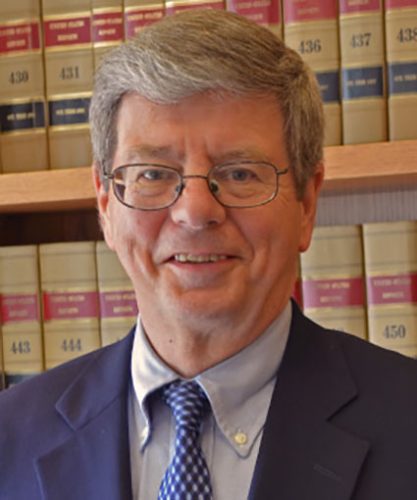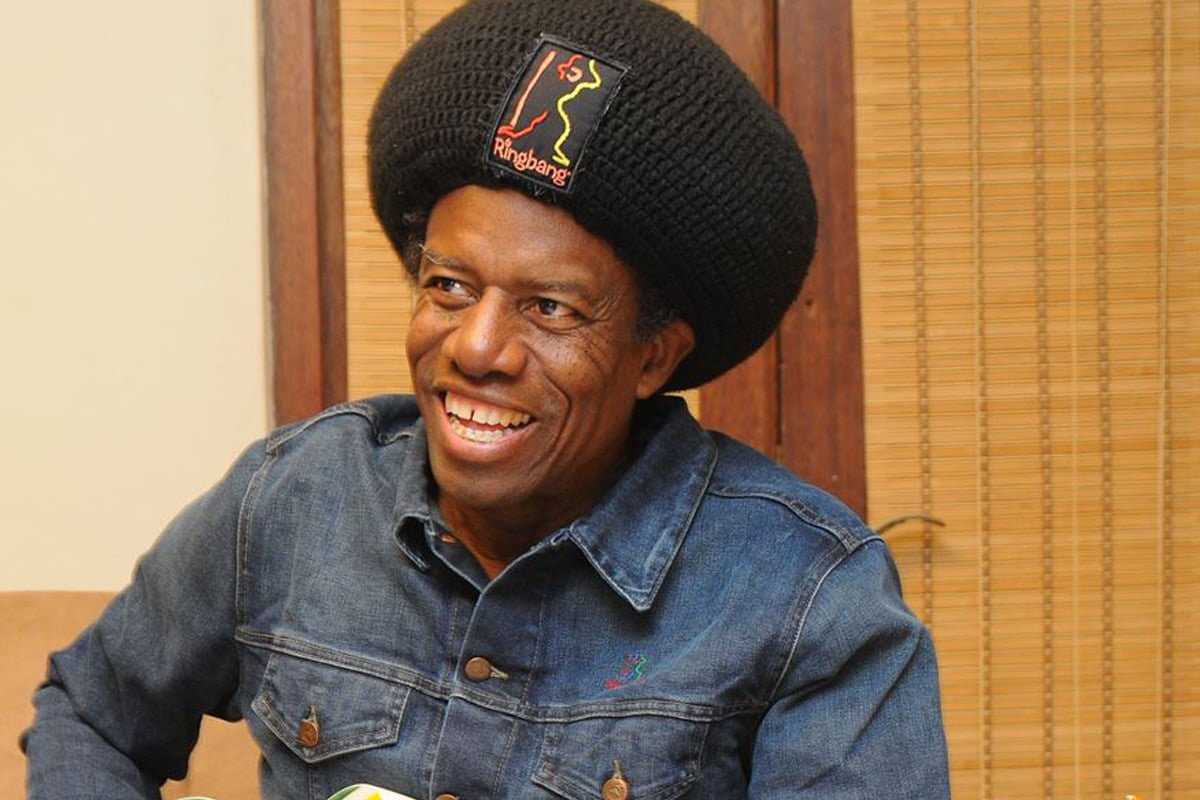The United States District Court in the Southern District of New York has issued an Opinion and Order in the matter concerning Guyanese-born international artiste, Eddy Grant and former United States president, Donald Trump, ruling that Grant’s music was improperly used and the musician was not compensated for his creation.
Grant, through his companies – Greenheart Music Limited (UK), and Greenheart Music Limited (Antigua) – had brought a copyright infringement action against former President Trump and his campaign for the unauthorised use of Grant’s music in an animated video created by a third party during the 2020 US presidential election campaign and posted by former President Trump on his personal Twitter account.
The piece of music in question was the song, “Electric Avenue” for which Grant, the plaintiff, asserted claims for copyright infringement for both the musical composition and the sound recording.

The Order, which was penned by District Judge John Koeltl, noted that in a previous Order dated September 28, 2021, the same Court had denied the motion brought by Trump, the defendant, to dismiss. It informed that the parties have now filed cross-motions for partial summary judgment.
The defendant had moved for summary judgment dismissing Count II of the complaint on the grounds that the plaintiff lacks a valid copyright registration for the sound recording of “Electric Avenue,” while the plaintiff moved for summary judgment on the issue of liability.
After the Court heard oral arguments on the motion on September 6, Trump’s motion for partial summary judgment was denied, and Grant’s motion for partial summary judgment was granted.
According to the Court, it arrived at its opinion based on several reasons. Firstly, that its decision was guided by the facts in the matter. A) It has been established that Grant did, write, produce and record the 3-minute-48-second song entitled “Electric Avenue” and that he and his companies were rightful owners of the music.
B) The song was used by Director of Social Media and Deputy Chief of Staff for Communications of the Executive Office of the President, Daniel Scavino, in a 55-second video in which the recording, embodying the composition, can be heard starting at the 15-second mark and continuing for the duration of the video. Scavino also testified that he spoke with former President Trump before posting the Tweet and that former President Trump “let [him] go with [his] instinct on it and post it.” Former President Trump testified that the video was taken from the internet and posted on Twitter. At the time, Trump’s Twitter account had nearly 100 million followers. According to Twitter, the video has been viewed more than 13.7 million times, and the Tweet containing the video has been “liked” more than 350,000 times and retweeted more than 139,000 times, and has received close to 50,000 comments.
C) In letter dated August 13, 2020, Grant, through his counsel, demanded that Trump’s team cease and desist from any further allegedly infringing conduct. However, as of September 1, 2020, neither the video nor the Tweet containing the video had been removed from Twitter. As a result, on September 1, 2020, the Grant filed his action.
Secondly, the Court explained that in the instance where both parties seek summary judgment, “the Court must assess each of the motions and determine whether either party is entitled to judgment as a matter of law.” In this particular case, the defendant put forward several arguments in an attempt to disprove the plaintiff’s claim of copyright protection, one of which stated that since the song was part of 2002 compilation entitled “Eddy Grant: The Greatest Hits” the copyright only extended to the entire compilation and not the specific song, Electric Avenue. This would mean that the song was unpublished and without protection.
However, citing several precedent cases, the Court ruled that accordingly, the defendants’ argument that “Electric Avenue” must have been unpublished at the time of the registration of “Eddy Grant: The Greatest Hits” was not persuasive. Therefore the judge ruled that the defendants’ motion for summary judgment dismissing the claim for copyright infringement of the recording of Electric Avenue (Count II) was denied.
With the court finding Trump liable for copyright infringement, Grant moved for for partial summary judgment, arguing that Trump’s only defence to liability was the concept of ‘fair use’, and that in this case, it did not apply. “There is no dispute that the composition and the sound recording of the musical performance for `Electric Avenue’ were used without permission and that the Composition was copyrighted. As discussed above, the plaintiffs also hold a valid copyright registration covering the sound recording of `Electric Avenue.’ The only defense that the defendants raise is that the Video’s use of `Electric Avenue’ was a fair use. Therefore, the only bar to a finding of liability by the defendants for copyright infringement as alleged in Counts I and II of the Complaint is the defense of fair use.”
In dealing with Trump’s assertion that the use of the recording was fair use, the Court set out a lengthy explanation of the Fair Use Doctrine pursuant to the Copyright Act of 1976, and accordingly determined that the fair use defence by the plaintiff could not be allowed, noting thatwhile “political speech… is a rich part of our First Amendment tradition[,]… denying the defendants’ fair use defense in this case… will not chill legitimate political satire.”
In deciding the motion to dismiss, the Court found that “there is a well-established market for music licensing, [and] the defendants sought to gain an advantage by using Grant’s popular song without paying Grant the customary licensing fee.” “It is plain that widespread, uncompensated use of Grant’s music in promotional videos—political or otherwise—would… undermine Grant’s ability to obtain compensation in exchange for licensing his music.”
The Court also considered whether unrestricted and widespread conduct of the sort engaged in by the defendants would result in a substantially adverse impact on the song’s potential market value. It ruled that in this case, there is no public benefit as a result of the defendants’ use of “Electric Avenue. “As the plaintiffs correctly argue, the defendants could have used any song, created a new song, or used no song at all, to convey the same political message in the Infringing Video.”
It further stated “that widespread, uncompensated use of Grant’s music in promotional videos—political or otherwise—would embolden would-be infringers and undermine Grant’s ability to obtain compensation in exchange for licensing his music.”
A ruling is expected on compensation.






